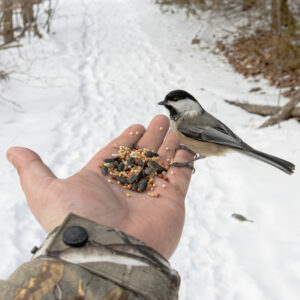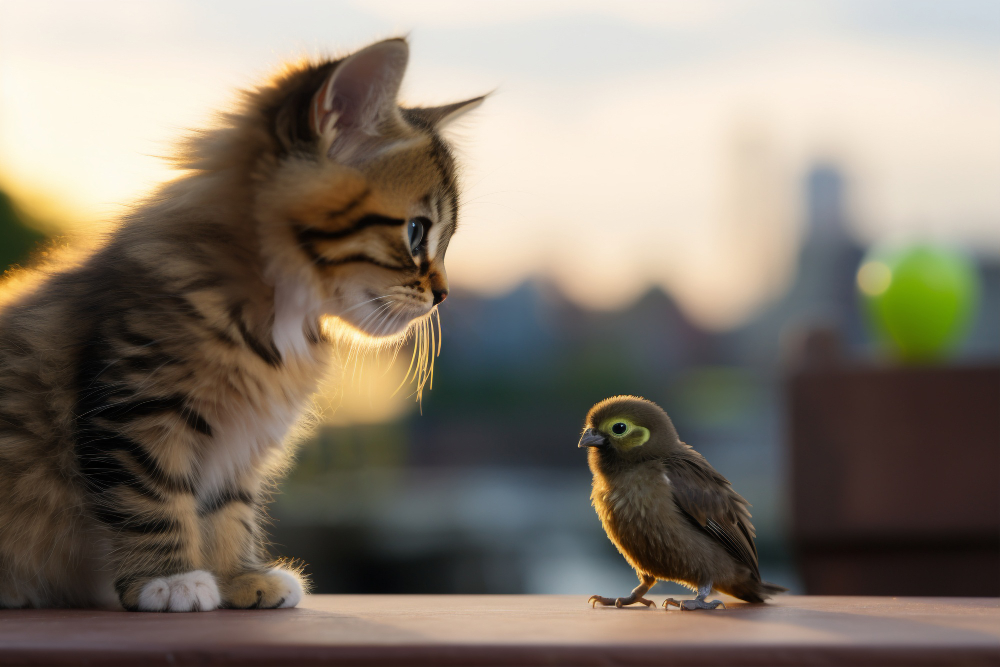Introduction
A Comprehensive Overview of the Subject of Avian Nutrition
Chia seeds were recently discovered as a superfood for humans in their remarkable nutritional profile. However, the bird lover may still ask, “Can birds eat chia seeds?” The answer is less straightforward than you would think. We will discuss nutritional advantages for birds and some potential issues with including chia seeds in your feathered friends’ diet.
Origin of Chia Seeds
Chia seeds were sourced from the Salvia hispanica plant, natively found in Mexico and Guatemala. Chia seeds have been in use for several centuries; their historic utilization can be traced through time to the ancient civilizations of the Aztec, Mayan, and other people who cherished them because of their benefits to health. More recently, chia seeds have appeared as one of the most important staples of contemporary health foods and diets worldwide. While their high fiber, protein, and omega-3 fatty acid content makes them a desirable addition to human diets, can they be an integral component of bird diets as well?

2. Nutritional Value of Chia Seeds to Birds
Chia seeds are full of essential nutrients which may eventually give a positive contribution to birds’ overall health. Some of the key benefits include:
1. High in Omega-3 Fatty Acids
Omega-3 fatty acids are imperative for avian health. These good fats maintain heart health, enhance the development of feathers, and ensure healthy brain activity. Chia seeds are rich in alpha-linolenic acid that primarily constitutes the body’s most necessary omega-3 fatty acid.
- High in Fiber
The chia seeds have a high fiber content that helps in improving the digestion of birds. This hence proves healthy in the gut of a bird and ensures regular bowel movements. - Rich in Protein
This is a good source of plant-based protein, which gives birds growth, repair, and health.4. Rich in Antioxidants
Chia seeds are also rich in antioxidants that protect birds from oxidative stress and boost their immune system.5. Mineral Content
Chia seeds are full of essential minerals like calcium, magnesium, and phosphorus, which are crucial for the metabolism and bone conditions of birds.3. Bird Species That Can Harness Chia
Chia is not suitable for all birds. Here are some bird species that may consume chia seeds:
1. Parrots
Parrots are very versatile in nature when it comes to feeding. They need a variety of seeds and grains and chia seeds can complement their diet. The use of chia can aid in adding the much-needed nutrient content.2. Finches and Canaries
These tiny birds need seeds in their diets. Chia seeds can be excellent snacks or supplements.3. Pigeons and Doves
Pigeons and doves feed on a mixture of seeds and fruits and grains. Chia seeds can supplement them with variety and nutrition in their diet.4. Wild Birds
Most wild birds can take chia seeds, especially when mixed with other seeds and grains in the bird feeders.4. How to Feed Chia Seeds to Birds
If you like to add chia seeds to their diets, here are some suggestions:
1.Soaking Chia Seeds
If you need to soak the chia seeds in water before offering it to birds, the seeds will expand and feel like gel most birds might find appetizing.
2. Mixing with Other Foods
Mix chia seeds with other seeds, grains, or fresh fruits to create a balanced diet. This will help ensure your birds receive a variety of nutrients.
3. As a Snack
You can give chia seeds as an occasional treat. Just a little amount can go a long way in providing added nutrition.
4. Watch Portion Sizes
While chia seeds are nutrient-rich, too many can be bad for the birds due to digestive problems. Be sure to control portion sizes.
Potential Risks of Feeding Chia Seeds
While offering a well-balanced diet is what makes chia seeds great, it can have its potential risks:
1. Allergies
Some birds may have allergies to chia seeds. Monitor your bird for signs of discomfort or adverse reactions if you’re introducing them for the first time.
2. Digestive Issues
Overfeeding Feeding the highest number of chia seeds in one go will lead to digestive upset. Feed in moderation and increase gradually in case digestions are well tolerated.
3. Overfeeding
As any treat, chia seeds should not be a significant portion of a bird’s diet. A healthy diet can only promise health.
6. Frequently Asked Questions (FAQs)
Can all birds eat chia seeds?
While most bird species can eat chia seeds, you must make sure that they suit your specific species. Birds with varied diets, such as parrots and finches, will benefit the most.
How many times a week should I give the chia seeds to my birds?
Chia seeds should be fed a couple of times a week as treats and supplements but not as a replacement for the main diet of seeds, fruits, and vegetables.
Should I pre-soak chia seeds before giving to the birds?
Soaking chia seeds is recommended as they become softer in texture and also more easily digested, although their sogginess might make them more digestible for your birds.
Who should not be fed chia seeds?
In general, virtually all birds can safely eat chia seeds; however, an avian veterinarian should be consulted if an allergy possibility or other dietary needs might be present.
Are chia seeds toxic to birds?
Chia seeds are relatively safe to birds if fed within moderation. Feeding too much is known to cause digestive problems, so they have to be watched on portions.
Are chia seeds nutritionally better when compared to other seeds?
Chia seeds possess nutritional density that provides a mix of omega-3 fatty acids, protein, fiber, and essential minerals. However, the well-being of the bird remains mainly dependent on its diet.
Conclusion
In summary, can birds eat chia seeds? The answer is, yes. Chia seeds may be included in the diet of almost any species of bird as nutritional but supplementary food if fed moderately and appropriately prepared. The nutritional benefits, which bird species can be eaten by, and the possible risks will make all the difference in having a well-balanced diet for the feathered pets. Including them in the diet of the bird safely will support their health and well-being.

